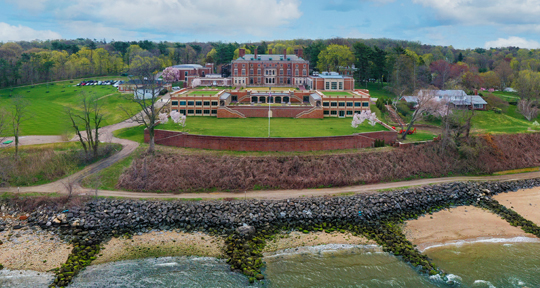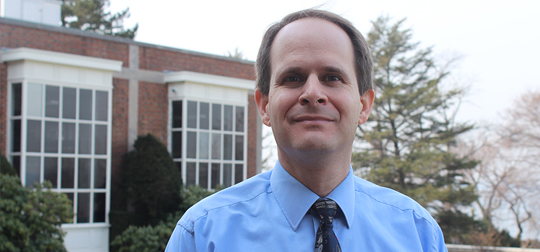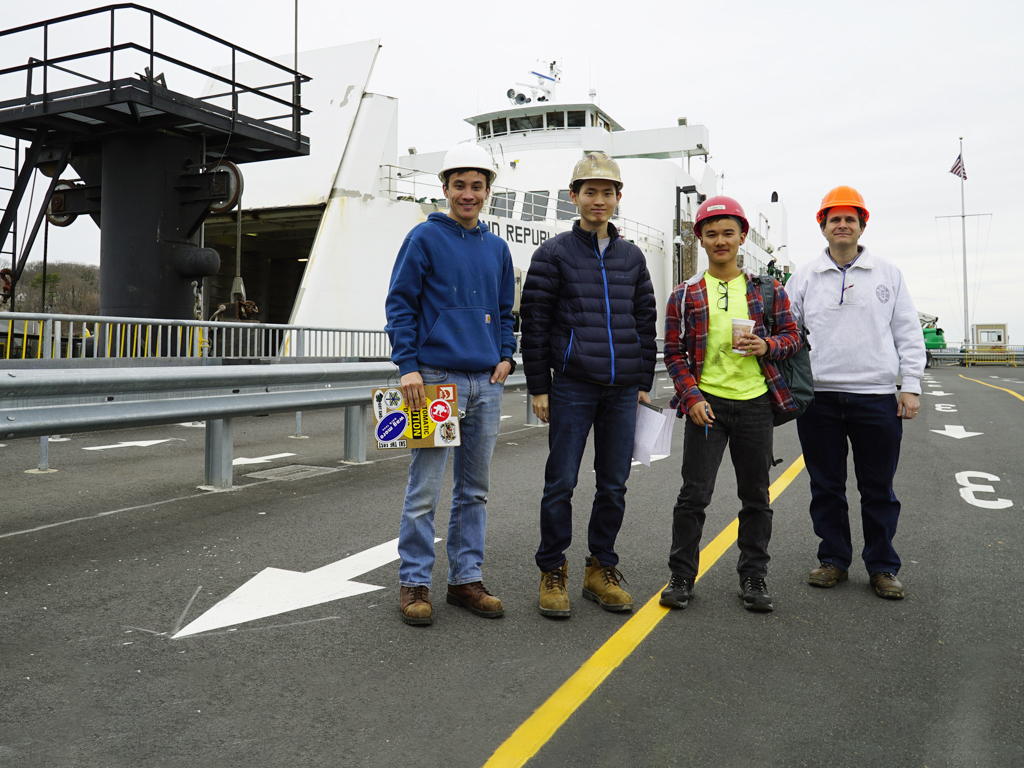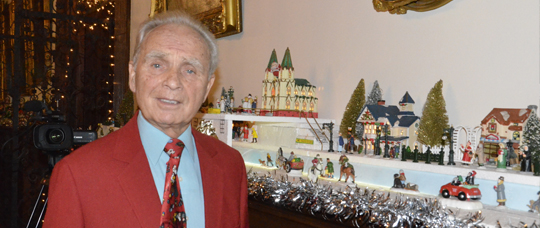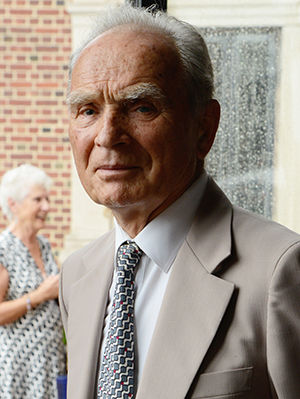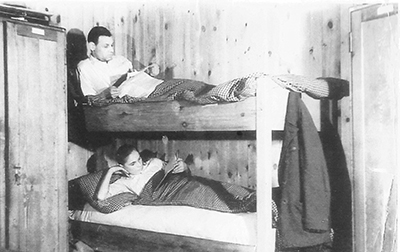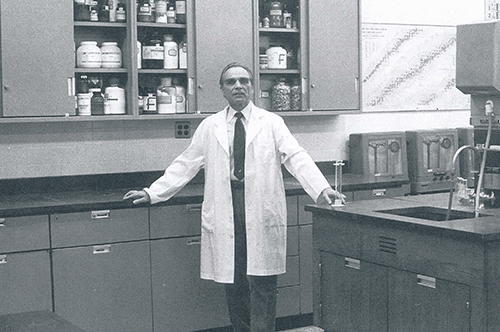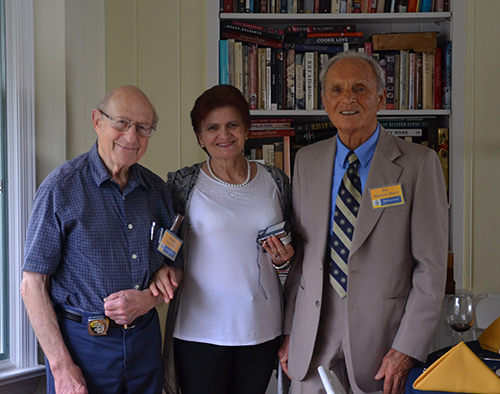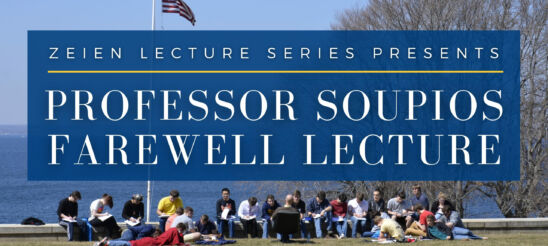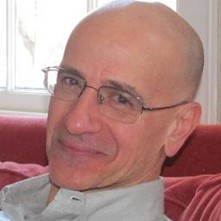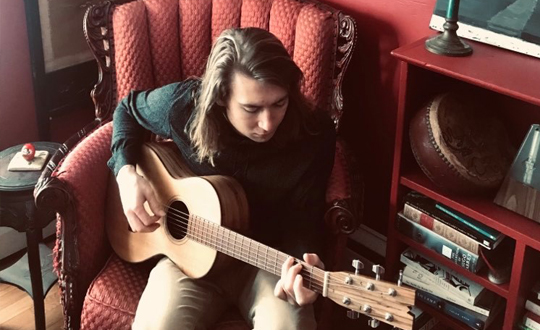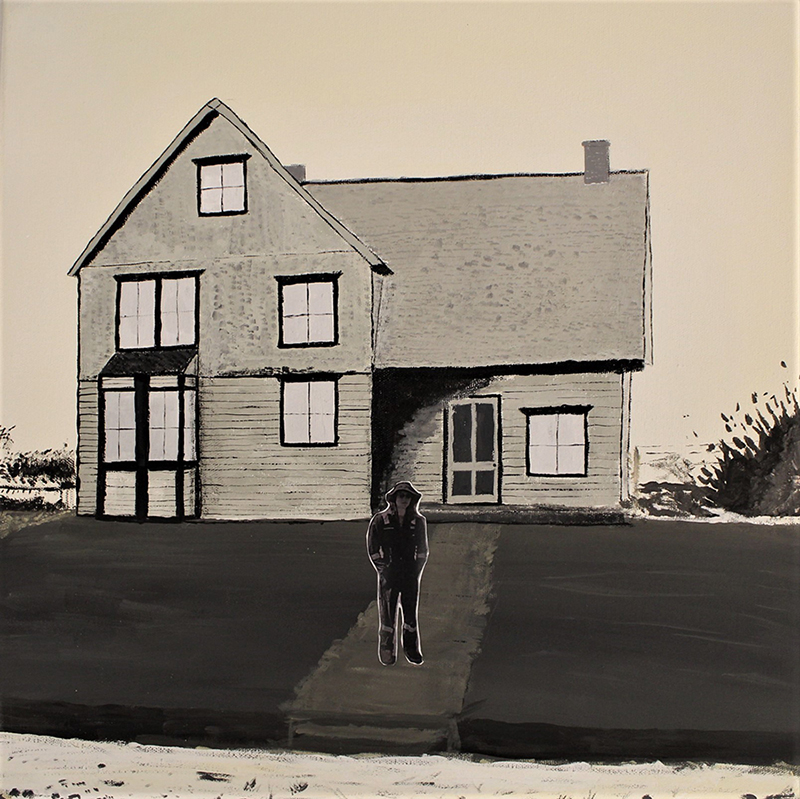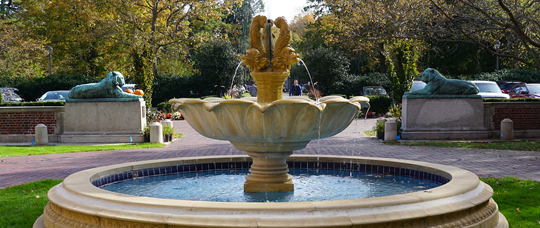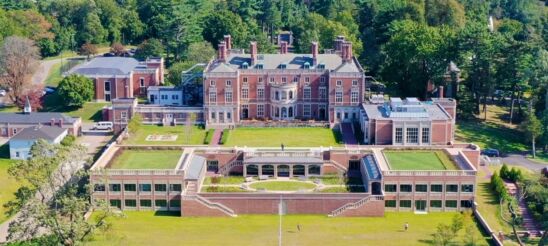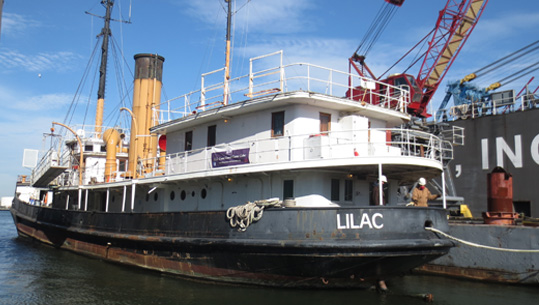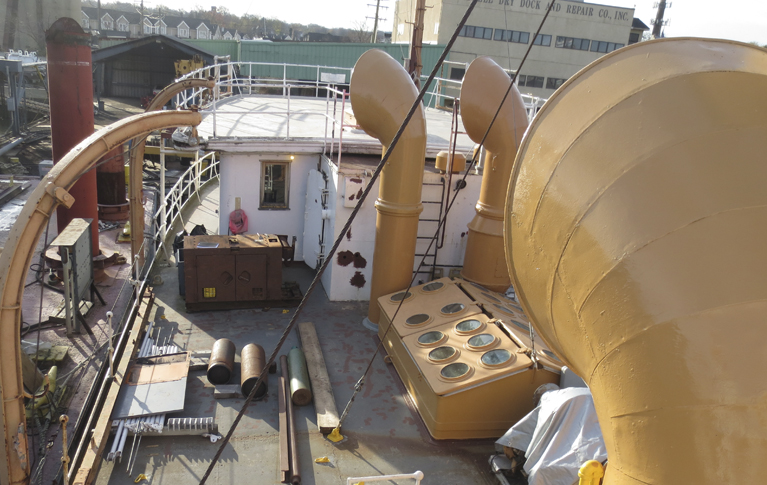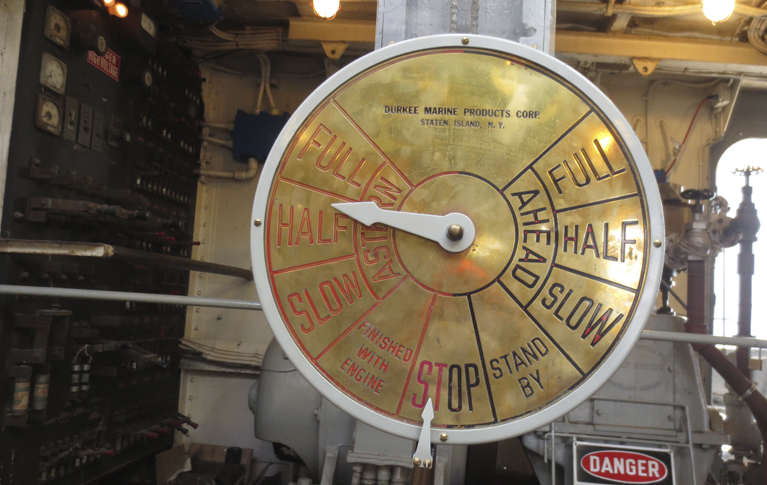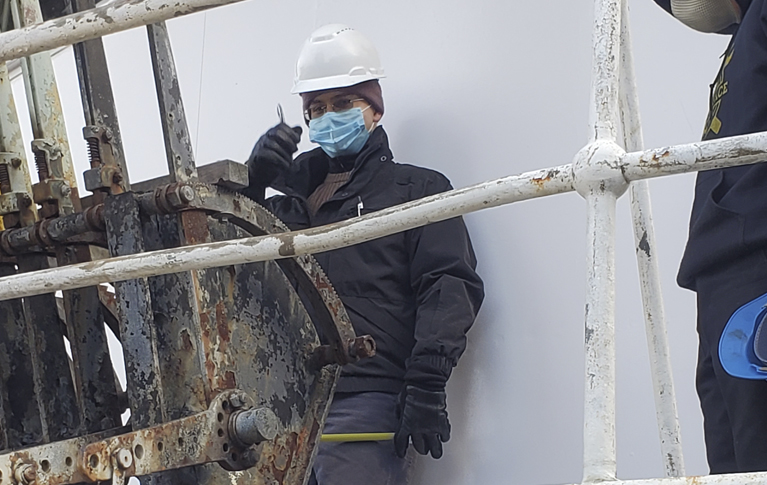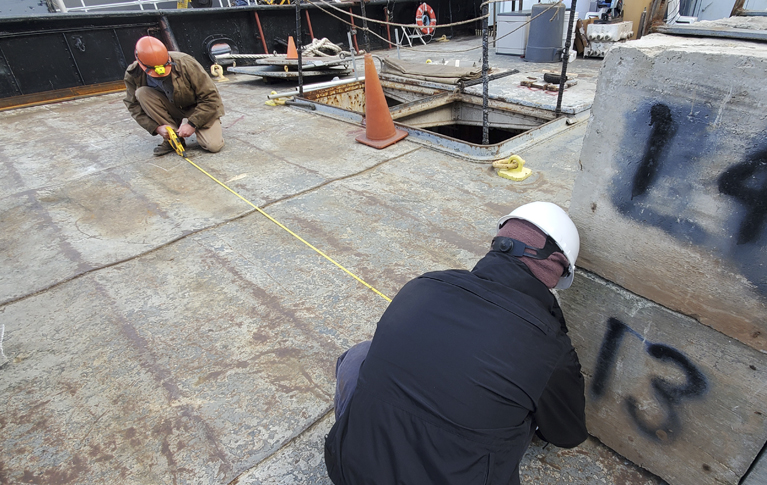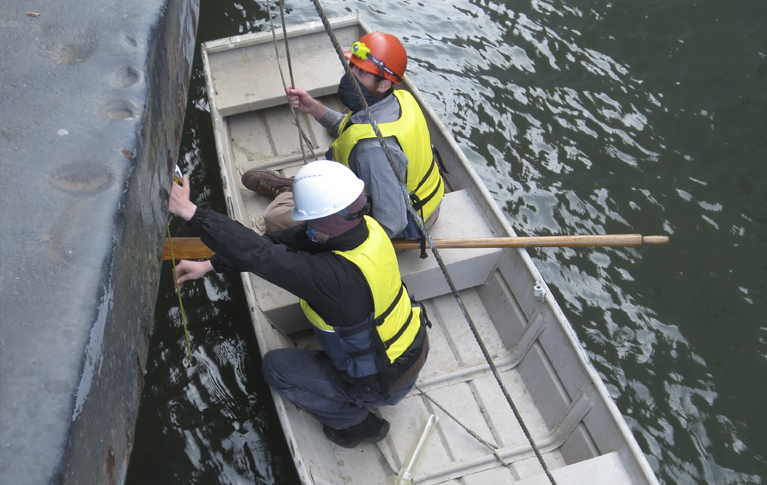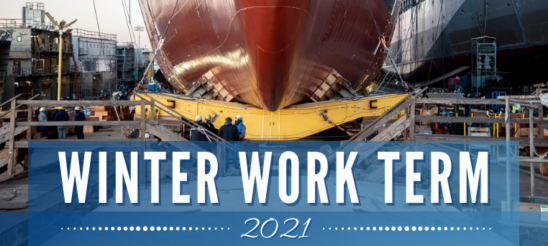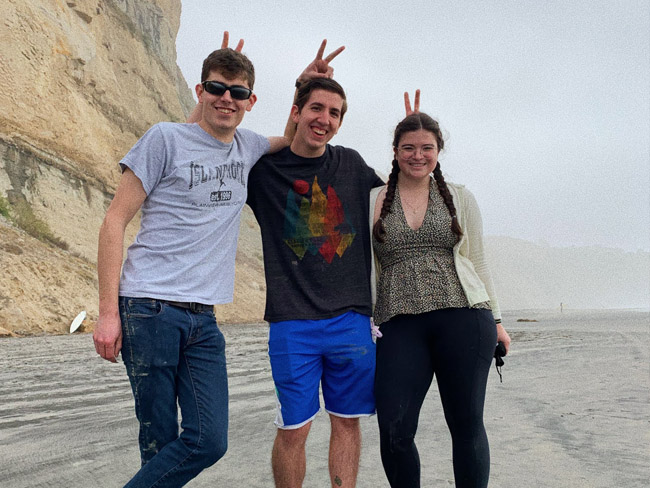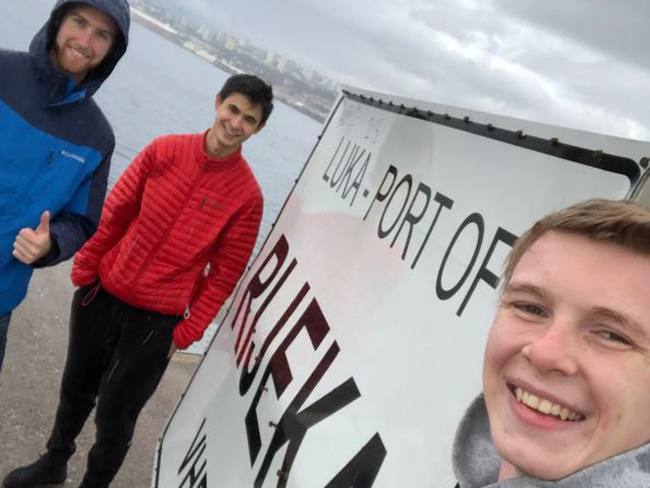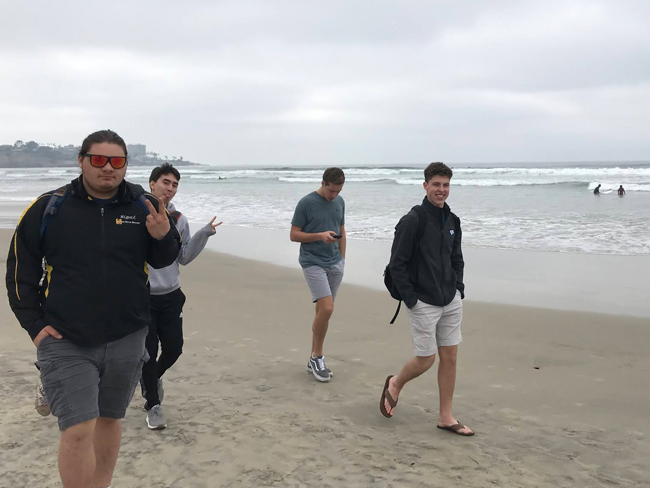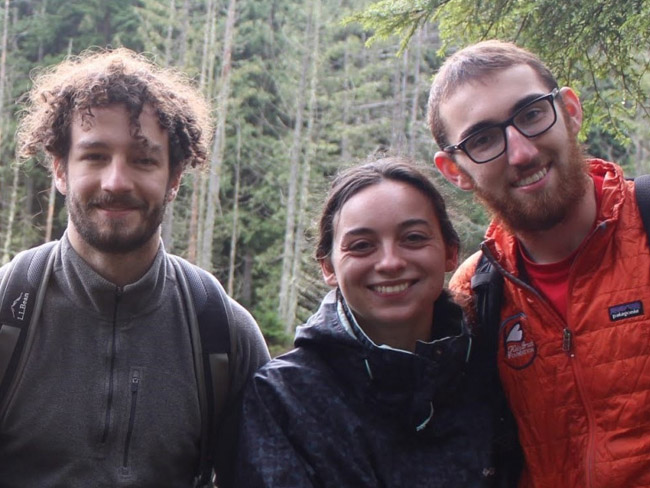Webb Institute is one of the nation’s top colleges for students seeking a superb education with great career preparation and at an affordable price, according to The Princeton Review®.
The education services company named Webb as a Best Value College for 2021 in a feature the company posted at https://www.princetonreview.com/college-rankings/best-value-colleges/. The feature profiles 200 schools that The Princeton Review selected out of more than 650 institutions the company considered and surveyed for this year’s project.
Information on the Best Value Colleges for 2021 project and its seven categories of ranking lists, as well as our profiles of the selected schools, is accessible for free with registration on The Princeton Review’s website.
The Princeton Review chose its Best Value Colleges for 2021 based on data the company collected from its surveys of administrators at more than 650 colleges in 2019-20. The company also factored in data from its surveys of students attending the schools as well as PayScale.com com surveys of alumni of the schools about their starting and mid-career salaries and job satisfaction figures.
In all, The Princeton Review crunched more than 40 data points to tally ROI (Return on Investment) ratings of the colleges that determined its selection of the 200 schools for the 2021 project. Topics covered everything from academics, cost, and financial aid to graduation rates, student debt, alumni salaries, and job satisfaction.
“The schools we name as our Best Value Colleges for 2021 comprise only just over 1% of the nation’s four-year colleges,” noted Robert Franek, The Princeton Review’s editor-in-chief. “They are distinctive in their programs, size, region, and type, yet they are similar in three areas. Every school we selected offers outstanding academics, generous financial aid and/or a relatively low cost of attendance, and stellar career services. We salute Webb Institute for these exceptional offerings and recommend it highly to college applicants and parents.”
The Princeton Review lists that the starting medium salary for Webb graduates is $81,500 (according to Payscale). Webb students described the college as “THE college for Naval Architecture and a job offer is basically guaranteed after graduating.”
The Princeton Review does not rank the colleges hierarchically on a single list, from 1 to 200. Among the project’s seven categories of ranking lists, Webb earned a #5 ranking on The Princeton Review list of Most Accessible Professors.
The Princeton Review is also widely known for its college rankings in dozens of other categories, many of which are reported in its annual book, The Best 386 Colleges, published in August.
Other Princeton Review rankings and lists that Webb Institute is on:
The Best 386 Colleges
Best Northeastern
Best Value Colleges
Tuition-Free Schools
Most Accessible Professors #5
About The Princeton Review
The Princeton Review is a leading tutoring, test prep, and college admission services company. Every year, it helps millions of college- and graduate school–bound students achieve their education and career goals through online and in-person courses delivered by a network of more than 4,000 teachers and tutors, online resources, and its more than 150 print and digital books published by Penguin Random House. Its Tutor.com brand is the largest online tutoring service in the U.S. It comprises a community of thousands of tutors who have delivered more than 18 million one-to-one tutoring sessions. The Princeton Review is headquartered in New York, NY. The Princeton Review is not affiliated with Princeton University. For more information, visit PrincetonReview.com. Follow the company on Twitter @ThePrincetonRev and Instagram @theprincetonreview
Professor Bradley Golden ’99 speaks on Hoisting the sail, a supply chain podcast
Recently, our Assistant Professor of Naval Architecture, Professor Bradley Golden ’99, made a special appearance on the new podcast Hoisting the Sail, where he speaks about the current state of the U.S. maritime shipping industry.
According to Wind Support NYC, “Bradley Golden paints a picture of the maritime shipping industry in the United States today. He explains the origin and impact of the 1920 Jones Act, the transformation of the industry toward decarbonization, as well as the opportunities created by the future implementation of wind farms in the New York-New Jersey Bight. Bradley opened our eyes to the possibilities in our own backyard and gave us reasons to look to the future with hope.”
About Wind Support NYC
Wind Support NYC was founded in January 2021 to promote and support projects utilizing wind propulsion to reduce emissions for a greener commercial shipping and maritime public transportation.
We are assisting live projects on the East Coast of the United States:
- impact & feasibility studies
- project management
- business development
- marketing & communication
- legal and regulatory
- logistics support
We are producing from the Brooklyn Navy Yard Hoisting the sail, a supply chain podcast.
Our inaugural episode was aired in March, we document the decarbonization of the shipping industry with the main objective to inform professionals of the supply chain in the US that innovative, low carbon ships are coming on the market.
Hoisting the sail tells the story of innovators and professionals that use the wind to power the maritime supply chain. How can you help? It is easy:
- Listen to Hoisting the Sail on Buzzsprout
- Follow us on Twitter @windsupportnyc
- Follow on Linkedin
In Memoriam: Joseph Mazurek
We are sorry to announce the passing of Joseph Mazurek (Hon.) on March 30th, 2021. Please take a look back on Joe’s life and days at Webb by reading the following story that was written by Professor Richard Harris, the Assistant Dean and Director of Humanities, for the 2017-18 Annual Report.
This article appears on page 44-46 of the 2017-18 Annual Report.
At Webb just about everyone has heard of “Joe Maz.” Joe Mazurek: the Lab Technician, the man with the European accent, the “older guy” who always attended the spring-semester ski trips, the person who made the name signs for the faculty offices in STH, the jokester who often had a wry comment about what was going on, and the person who for many years orchestrated an elaborate Christmas display in the Visconti Reception Room. He was that staff member who was always eager to help. Probably few Webbies, however, know about Joe’s life story, which is a fascinating tale.
Most Webb Family members know that Joe came to the U.S. from Poland. His early life there was typical of the lives of many men born in Poland in 1925. His father was a mason, who later worked on bridge construction. His mother stayed at home for the most part, tending to six children, though she was also a midwife and an art teacher. According to Joe, his childhood was rather conventional until September 1, 1939, when Germany invaded Poland, thus beginning the Second World War. Throughout and after the war Poland found itself caught between two of the great powers of the time, Germany to the west and Russia/the Soviet Union to the east. Both would have a significant impact on Joe’s life.
Joe remembered vividly the news that the Germans were approaching his village outside Warsaw; first, word that they were 20 kilometers away, then only one. His first sight of the Germans was two motorcycles with side cars, both with mounted machine guns, roaring into his village. Another of his childhood memories involved the men in the village throwing their rifles down a well, so the Germans, who had overrun the area, would not find them armed and execute them. On a freezing winter night, however, Joe was lowered by rope into the well to retrieve the rifles, so they could be hidden again, buried in the local cemetery. He and two older men involved in the plot were subsequently questioned by German soldiers and an officer who ordered them to be taken away. Another German officer stepped in, however, and separated Joe from the others, telling him to run away as fast as he could. The other two men were led into the woods and shot.
From 1942 to 1945, Joe was in a German work camp outside Warsaw. The accompanying photograph, taken in 1942, when Joe was seventeen, shows him on the lower bunk of the barracks in that camp. He does not talk about the hardships, rather about how he made these years of his life into something positive. The men there were part of a force of factory workers turning out large artillery pieces. Here Joe really began to learn about industrial design and production from the experienced machinists.
Joe was always interested in the way things work. And this interest is what finally brought him to Webb, though by a rather circuitous path. When the war ended in 1945, Joe was ready to move on and learn more, and he found employment in a Polish Navy shipyard. On November 6, 1945, he was on a Polish destroyer that was rammed by a tug in a heavy fog. Joe was in the water for over an hour before being rescued. His spine and knee injuries meant that he was no longer able to work in the shipyard. Luckily, Joe renewed a friendship that he had made in the work camp, and the friend’s father was a professor at the University of Gdańsk. Joe met with the friend’s father, signed a paper (which in itself is another story), and then spent two years preparing to go to the Polytechnic University. Finishing at the Polytechnic University, Joe then earned a Master of Technology degree from the University of Warsaw, and soon after was working again in a shipyard in Gdańsk. He then worked out of Gdańsk for both the Polish Ocean Line and Polish Rescue companies.
If the German invasion of Poland had been a major influence on the Joe’s earlier years, the Soviet takeover of Poland in the post-war period determined the next years of Joe’s life. Despite his degrees in engineering and technology, Joe was assigned less important jobs and was not allowed to advance at the shipyard. The reason was simple: He would not join the Communist Party. On the one hand, he did not agree with the Soviet ideology; on the other hand, he wanted to come to America, and he knew that if he did become a member of the party, in the Cold War climate following the war, he almost certainly would be denied entrance. So, for four to five years, Joe traveled the world, teaching students on Polish naval vessels how ships worked. During that period, he earned his license as a Navy Officer-Mechanic. Then, at a port call in Holland, he decided to jump ship and try to make his way to the U.S. He had a sister who had already come to Long Island, and his wife, a doctor, was already working at a hospital in Brooklyn. For six months in Holland, he “disappeared,” avoiding attempts by the Polish shipyard and the Dutch police to find him. Finally, he fulfilled his dream of coming to America when he made it to New York on an immigrant visa and began looking for a job. Someone he met took him to J. J. Henry, but that company could not hire him because he was not a U.S. citizen and thus could not work in a shipyard involved in U.S. Navy contracts. He did, however, find employment with Todd Shipyard in Brooklyn, which fortunately for him had a general manager named Mr. Kochanczyk ’41. He had a sixteen-year career at Todd.
And then Joe’s life took another turn. One of the managers at Todd played golf with Admiral Russell Bryan who served as President of Webb Institute at the time. Before long, Joe was being shown around the Webb campus by Jacques Hadler. He decided to take a job as a Lab Technician. The year was 1983. Now thirty-five years later, Joe has returned to Poland, where he has visited old friends and made many new ones over the years.
As we look back over Joe Maz’s years at Webb, a couple of things stand out. He loved the ski trips, though he didn’t learn to ski until after he came to Webb. He also knew how to skate, although one of his most amusing stories is how he feigned not knowing how to skate, just so he could be “taught to skate” by an instructor he fancied. After treating her to lunch, the pair returned to the rink, where Joe momentarily forgot that he “didn’t know how to skate”: he made a turn that gave him away. He says she seemed even more impressed with his ruse than with the turn.
I‘m pretty sure that all of us who were at Webb between 1998 and 2008 remember that Joe ran the New York Marathon on numerous occasions, the first of which was at the age of seventy-three. The Monday after each marathon he would eat lunch in his running outfit, proudly displaying his medal. His first run would have made for a Sports Illustrated classic. Having learned that he had won an at-large lottery spot only weeks before that year’s marathon, he began training by running up to eight miles a day. (This training regimen left another eighteen miles to contend with.) His night-before, pre-run meal consisted of two cheeseburgers, a couple of gin and tonics, and polka dancing at Glen Cove’s Polish Hall. He awoke at 4 a.m. on the day of the marathon so he could arrive to Staten Island in time for the beginning of the race. He felt that he did pretty well for the first eleven miles—and then the cramps set in. He had to stop numerous times to massage his legs. One of his worst moments, even considering the pain in his legs, came when he dumped a paper cup of what he thought would be water over his head to cool off. Unfortunately, it was orange juice. A swarm of flies accompanied him to the finish line. He ran the marathon nine times between 1998 and 2008 and planned to run a tenth, but in October and November 2009, he was instead caring for a friend who was ill. That was typical of Joe.
Joe’s holiday displays have brightened the Reception Room for eighteen years! Joe says that in 2000, he spoke with President Ron Kiss ’63 about displaying decorations he owned in the Visconti Reception Room. Joe envisioned decorating the window sills in the alcove looking out over the Sound. President Kiss liked the idea, and, turning to the opposite wall adjacent to the Lenfest Gallery, he said, “Joe, you can have this whole wall.” So, Joe—of course— started looking for more decorations. He found a store on Route 110 that displayed decorations on sale and told the sales rep, “Here’s $50. Hold all of them for me. I’ll be back to pick them up.” Almost $2,000 later, Joe had the collection of most of the figures we’ve seen for the past eighteen years. He assures me that he will return to Webb during the 2019 Thanksgiving break to set up this display for the nineteenth time. He can’t stay away from Webbies for too long; they have been his “family” for years.
The story of the Christmas decorations exemplifies his energy and generosity and positive spirit. Years ago, I commended Joe for one of his many good deeds and expressed to him that it was nice to know someone so good-natured and generous. His reply to me was this: “Professor, anyone who has seen what I have seen in my life, knows why it is so important for us to be positive and good to each other.” That comment, as much as anything, probably captures and explains the Joe Maz I’ve known.
Joe’s giving spirit has made him a General Admiral level supporter of the Campaign for Webb. Through his estate and subsequent gifts, Joe has established The Joseph Mazurek Scholarship Fund, a fund that will provide need-based support for room-and-board scholarships. Also, Joe has made a generous gift to the new Academic Center that enables Webb to establish the Jacques Hadler Faculty Conference Room.
Webb Professor Adrian Onas Discusses Parametric Rolling and its Impact on the Shipping Industry
Parametric rolling is like a “heart attack of design.” – Adrian Onas
Professor Soupios Farewell Lecture
PROFESSOR SOUPIOS RETIRING FROM WEBB
Late last semester Professor Michael Soupios announced that he would retire from Webb, effective as of the end of the fall semester. His teaching the freshman Introduction to Political Philosophy and the junior Development of American Government courses has been fundamental to the Humanities program at Webb for twenty-three years. No one who had him for these courses can forget his incredible breadth of knowledge, his clear and effective explanation of material—and his meeting classes in the Cuneo Courtyard or on the lawn behind Stevenson Taylor Hall.
Please enjoy his farewell Zeien Lecture that was presented to the Webb Community on March 18th, 2021:
ABOUT PROFESSOR SOUPIOS
Professor Soupios, Professor of Political Science at LIU, C. W. Post Campus, came to Webb as an adjunct professor in the spring of 1997 at which time he, remarkably, had four master’s degrees and three doctorates; in the time he has been at Webb, he completed yet another doctorate. During his “spare” time he has also managed to publish five books and numerous articles on ancient Greek thought and European political theory. On another note, students who have visited his home have seen his impressive copies of ancient Greek statues and, of course, his Galápagos Island tortoises.
Professor Soupios no longer runs 100-mile marathons, but he is now engaged in some serious mountain climbing. In 2019 he reached over 18,000 feet on Mount Everest; in 2020 he climbed to the top of Mount Kilimanjaro, the highest mountain in Africa; and in January this year, he climbed six mountains in the Andes, including Mount Ojos del Salado in Chile. His next scheduled climbs are Mount Maunakea in Hawaii this spring and Mount Fuji in Japan this summer.
Professor Soupios’ colleagues, former students, and the Webb family thank him for twenty-three years of teaching excellence at Webb Institute and wish him all the best in his further adventures.
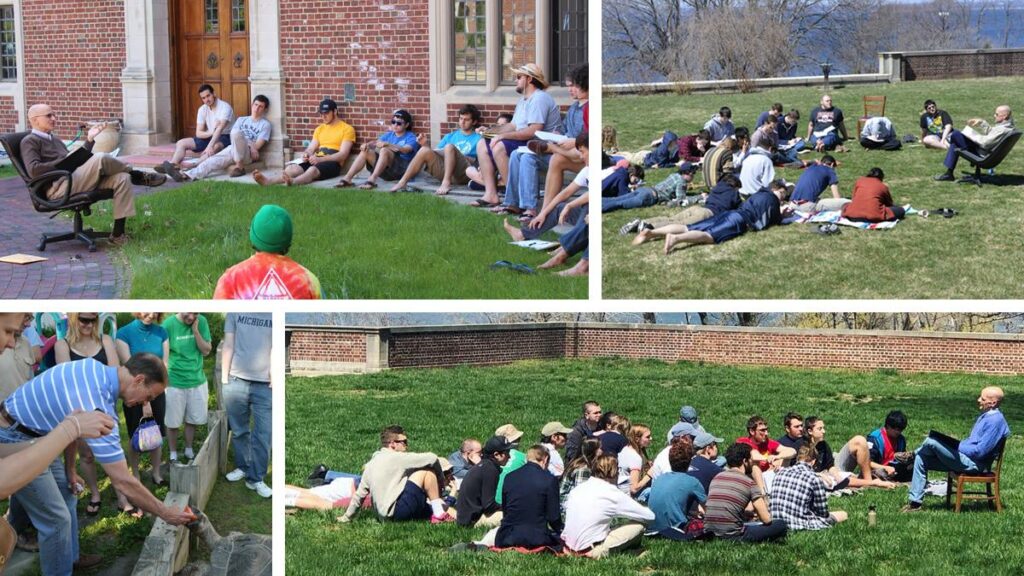
If You Can Design a Ship, You Can Record an Album
By Luke Herbermann ’21
When I came to Webb in the fall of 2017, I knew I would love my major and meet some great friends. I did not know that, in addition, I would find the time to record and produce my first musical album titled Take N One.
The story of the album begins before Webb, in my home state of Rhode Island. I started writing music in high school and formed a band with two friends. They were able to help me write supplemental parts to the songs I had already written for me and my guitar. Together we learned how to use proper equipment to record and produce music entirely by ourselves.
When I got to Webb, I thought I would have to put music on the back burner for a while. There is no doubt it was always second to academics, but it was not until recently when I looked back on my time at Webb that I realized how few sacrifices I was forced to make. Webb offered me convenient, yet formal, musical outlets with groups like the WooFS (Webb Family Singers) and the Webb jazz band. For our humanities elective, some of my classmates and I chose to take a music composition elective. It was in this course where I composed a “Study in Em,” the opening track to my album. In the fall of my sophomore year, I went abroad to the University of Southampton. While in England, I audited a class in songwriting and joined several music clubs to become a more polished guitar player. While doing my sea term aboard the M/V Yorktown Express, I recorded the ominous sound of crashing waves on the ship. This would be another track on my album.
Out of all of the places Webb has taken me to, the most important musical space for me has been the Webb auditorium. The auditorium is where I spend time writing music and reflecting on days both difficult and joyous. Webb has become embedded in my life and consequently in my music as well. In the fall of 2020, I managed to find a few spare minutes to set up equipment and focus on finishing recording some tunes. What ensued is a modest album that I am very proud of.
Listen to the album here:
A Message from President Michel to the Webb Family
Like so many of you, I am shocked and shaken by the horrific events that occurred in our nation’s capital on January 6th. It seems unfathomable — that a mob of U.S. citizens, incited by our own President, could desecrate the Capitol building with the intent of negating a legitimate election and thwarting the peaceful transition of power. Furthermore, the racist motives underpinning this attack on our democracy are egregious and disheartening.
We can take solace in the coming together of our Senators and Congressmen, demonstrated by their perseverance and resilience that evening as the electoral votes were counted and President-elect Biden’s election confirmed. Our Founding Fathers reminded us that a democracy is not an entitlement, that it is difficult to establish and easily lost. We have witnessed the fragility of our democracy this past week and now must work together in the continuous process of creating a “more perfect union”.
As educators, we have a responsibility to instill in our students the notion that democratic processes are the proper means for resolving differences. We have a duty to provide students with the experiences needed to become effective advocates for positive change and thereby stewards of our democracy. Our free society depends on these efforts.
These times are challenging but the future remains bright. Webb has long fostered a culture of respect and care for others. Let’s build upon these attributes and continue to make a difference.
With my best wishes,
R. Keith Michel
President, Webb Institute
Long Island-based Robert D.L. Gardiner Foundation partners with Webb Institute to enhance campus-wide access for disabled persons
Photo caption: Webb’s idyllic campus, with the Couch Academic Center in the foreground and Stevenson Taylor Hall in the background
Glen Cove, NY – On November 20, 2020, the Robert David Lion Gardiner (RDLG) Foundation awarded Webb Institute a $299,250 grant to support the construction and installation of an ADA compliant elevator in Webb’s flagship building, Stevenson Taylor Hall (STH, formerly a Pratt family vacation retreat), and an ADA compliant vertical platform lift linking the college’s newly constructed Couch Academic Center (CAC) to the historic STH. This grant was provided as a 1:1 match, whereby Webb Institute is responsible for the remaining funds to complete the project. Construction is scheduled to be completed by March 1, 2021.
Webb Institute is a small, top-ranked undergraduate engineering college located in Glen Cove, New York. Webb provides a full-tuition scholarship for all its students for all four years as they earn a BS degree in naval architecture and marine engineering. While the full-tuition scholarship assists students tremendously in affording a Webb education, many students and their families are challenged to pay for room and board and other expenses. This unmet need has been typically covered through student and parent loans. The RDLG Foundation previously (2018) provided Webb with a generous grant, that when combined with Webb’s existing scholarships, enabled Webb to meet the demonstrated financial need of all current and incoming Webb students. This successful scholarship program removed barriers of entry to Webb for underrepresented minority students and diversified Webb’s student body. Through this partnership, Webb also joined a list of approximately 70 colleges and universities in the United States that meet full demonstrated need.
“We are thrilled to extend our partnership with the Robert David Lion Gardiner Foundation through this important infrastructure enhancement,” said Webb President R. Keith Michel. “While both the Couch Academic Center and Stevenson Taylor Hall (STH) can be accessed from outside entrances separately, the current layout did not present a path for persons with disabilities to seamlessly maneuver between the college’s main buildings, and STH lacked an ADA compliant elevator. Thanks to our partnership with the RDLG Foundation and the vision of Webb’s Board of Trustees, we will enhance connectivity and seamless passage through two key buildings on Webb’s campus while we preserve the historical character of the Pratt mansion.
About Robert David Lion Gardiner Foundation:
The Robert David Lion Gardiner Foundation, established in 1987 primarily supports the study of New York State history, with an emphasis on Suffolk County. Robert David Lion Gardiner was, until his death in August 2004, the 16th Lord of the Manor of Gardiner’s Island. The Gardiner Family and their descendants have owned Gardiner’s Island since 1639, obtained as part of a royal grant from King Charles I of England. The Foundation is inspired by Robert David Lion Gardiner’s personal passion for New York history.
About Webb Institute:
Founded in 1889 by New York-based ship builder William H. Webb, Webb Institute is a top-ranked undergraduate institution specializing in Naval Architecture and Marine Engineering. Webb is the only full-tuition scholarship, private undergraduate program of its kind in the United States, with a maximum of 28 students being accepted into the program each year. Webb Institute’s beautiful, waterfront campus is located in Glen Cove, NY, on the North Shore of Long Island.
For additional information regarding this partnership, contact:
Anthony R. Zic
Director of Development
ude.bbew@ciza
516-641-6372
For general media inquiries, contact:
Kerri Allegretta
Director of Communications
ude.bbew@attergellak
516-403-5392
###
Webbies Preserving the Past: Steamship Restoration Project
by Ian Cosic ’21
On November 19, Webb seniors Ian Cosic and Cross Weeks had the unique opportunity to conduct an inclining experiment aboard the USCG Lilac. Constructed in 1933, the Lilac is the last steam-powered lighthouse tender in the United States. For the last 17 years, she has been maintained and exhibited to the public as a museum ship by the Lilac Preservation Project, a group of dedicated volunteers working to restore the vessel and preserve her rich history.
The experiment, conducted as part of their senior thesis, consisted of a calculated series of weight shifts across the deck of the vessel to induce an angle of heel. This was then measured with three different pendulums. Before the actual shifting of the weights, Ian and Cross explored every space on the Lilac to catalogue the weight and center of gravity of every moveable object aboard the vessel. Using the data from the experiment, the students will be able to determine the vessel’s current vertical center of gravity and assess her intact stability. They hope to assist the vessel’s owners in developing a plan to modify the Lilac for eventually carrying passengers. Their thesis advisor, Professor Bradley D.M. Golden ’99, was present to assist and to provide guidance on the experiments.
Winter Work Term 2021
During Winter Work term, our students spread out across the globe to gain real-life working experience.
Freshmen work alongside ship fitters and welders in shipyards. Sophomores serve as student observers aboard ocean-going ships to gain hands-on understanding and appreciation for the relationships between the marine environment, the shipping industry, the ship’s operators, and the ship’s design. Juniors and seniors network and apply themselves in design and engineering offices around the world.
Many thanks to the Webb alumni who reached out and offered jobs for Webb’s upcoming Winter Work Term. The upperclassmen were able to secure either remote or on site work, and all of the freshmen were placed in shipyards. The sophomores will not be sailing until the summer of 2021, but a good number of them were able to find work this winter in the maritime community. Thank you Jake Genauer ’10 and Vicky Dlugokecki ’88 for all your efforts.
See where our Webbies are this Winter Work Term!
Winter Work Blogs:
Stuck in San Diego: COVID Edition ’21
The following blog describes the not-so-spontaneous adventures and learning experiences of Dillon Esposito-Kelley ’21, Daniel Desio ’21, and Ioana Mirica ’22 while they intern at General Dynamics NASSCO in the winter of 2021.
Follow Jacob Dillistin ’23, Luke Kiely ’22, and Nathaniel Philips ’23 as they set out overseas to spend their Winter Work term at Metal Shark in Croatia.
This blog documents the experience of eight freshmen who will be working in two shipyards, Marine Group and General Dynamics NASSCO, in San Diego. Kohta Erdos, Kadi Zheng, Margo Bourn, Miguel Sanchez, Zach Doerr, and AJ Mills will be working at NASSCO, assigned to different departments. Tim Lazouski and Payne Donaldson are interning at Marine Group, a smaller shipyard that focuses on vessel repair.
Read about Alex Koziol ’21, Ben Hunt ’21, and Juliette Lehman’s ’22 Winter Work Term in Seattle, Washington. Ben and Alex will be working in the marine engineering and marine construction departments at Glosten, a marine consulting firm. Juliette will be working at Elliott Bay Design Group, which specializes in marine transportation.
Winter Work Term Companies:
Class of 2021
| BMT Designers & Planners, Inc. | Arlington, VA |
| Boksa Marine Design | Tampa, FL |
| Bruce S. Rosenblatt & Associates LLC | Newport News, VA |
| Colonna’s Shipyard | Norfolk, VA |
| Eagle Bulk Shipping | Stamford, CT |
| Excelerate Energy | The Woodlands, TX |
| GD NASSCO | San Diego, CA |
| Gilbert & Associates | Lenox, MA |
| Glosten | Seattle, WA |
| Herbert Engineering | Alameda, CA |
| HII Newport News Shipbuilding | Newport News, VA |
| Hinckley Yachts | Portsmouth, RI |
| International Seaways, Inc. | New York, NY |
| Martin Defense Group | Honolulu, HI |
| Northstar Midstream | Houston, TX |
| Oceaneering International, Inc. | Hanover, MD |
| University of Maine | Orono, ME |
| Vigor | Seattle, WA |
Class of 2022
| American Bureau of Shipping | Houston, TX |
| Aurora Marine Design | San Diego, CA |
| Bristol Harbor Group | Bristol, RI |
| DLBA Naval Architects | Chesapeake, VA |
| Elliott Bay Design Group | Seattle, WA |
| GD NASSCO | San Diego, CA |
| Gibbs & Cox | Arlington, VA |
| Great Lakes Shipyard | Cleveland, OH |
| Gulf Marine Repair | Tampa, FL |
| Hockema Whalen Myers Associates | Seattle, WA |
| Hydrocomp, Inc. | Durham, NH |
| Mercury Marine | Fond Du Loc, WI |
| Metal Shark Boats | Jeanerette, LA |
| Metal Shark Boats | Rijeka, Croatia |
| Murray and Associates, Inc. | Fort Lauderdale, FL |
| Northstar Midstream | Houston, TX |
| SERCO | Arlington, VA |
| Stolt-Nielsen Limited | Houston, TX |
| ThayerMahan | Mystic, CT |
| Universite de Pau et Pays d’Atours | Anglet, France |
| U.S. Marine Inc. | Gulfport, MS |
Class of 2023
| Aurora Marine Design | San Diego, CA |
| Bruce S. Rosenblatt & Associates LLC | Newport News, VA |
| Bruce S. Rosenblatt & Associates LLC | Newport News, VA |
| Global Secure Shipping | Old Town, ME |
| Matson | San Francisco, CA |
| Metal Shark Boats | Rijeka, Croatia |
| NEEC | Glen Cove, NY |
| NETSCo | Tampa, Florida |
| Persak & Wurmfeld | Brooklyn, NY |
| Quantum Marine Stabilizers | Ft. Lauderdale, FL |
| Shipwright LLC | Ft. Lauderdale, FL |
Class of 2024
| Austal, USA | Mobile, AL |
| Brookin Boatyard | Brooklin, ME |
| Caddells Shipyard | Staten Island, NY |
| Colonna’s Shipyard | Norfolk VA |
| GD NASSCO | San Diego, CA |
| Gulf Island Shipyard | Houma, LA |
| M. Rybovich & Sons | Palm Beach Gardens, FL |
| Marine Group Boatworks | San Diego, CA |
| Metal Shark Boats | Jeanerette, LA |
| Safe Harbor New England Boatworks | Portsmouth, RI |
| St. Johns Shipbuilding | Palatka, FL |
| Steigercraft | Bellport, NY |
| U.S. Marine, Inc. | Gulfport, MS |

